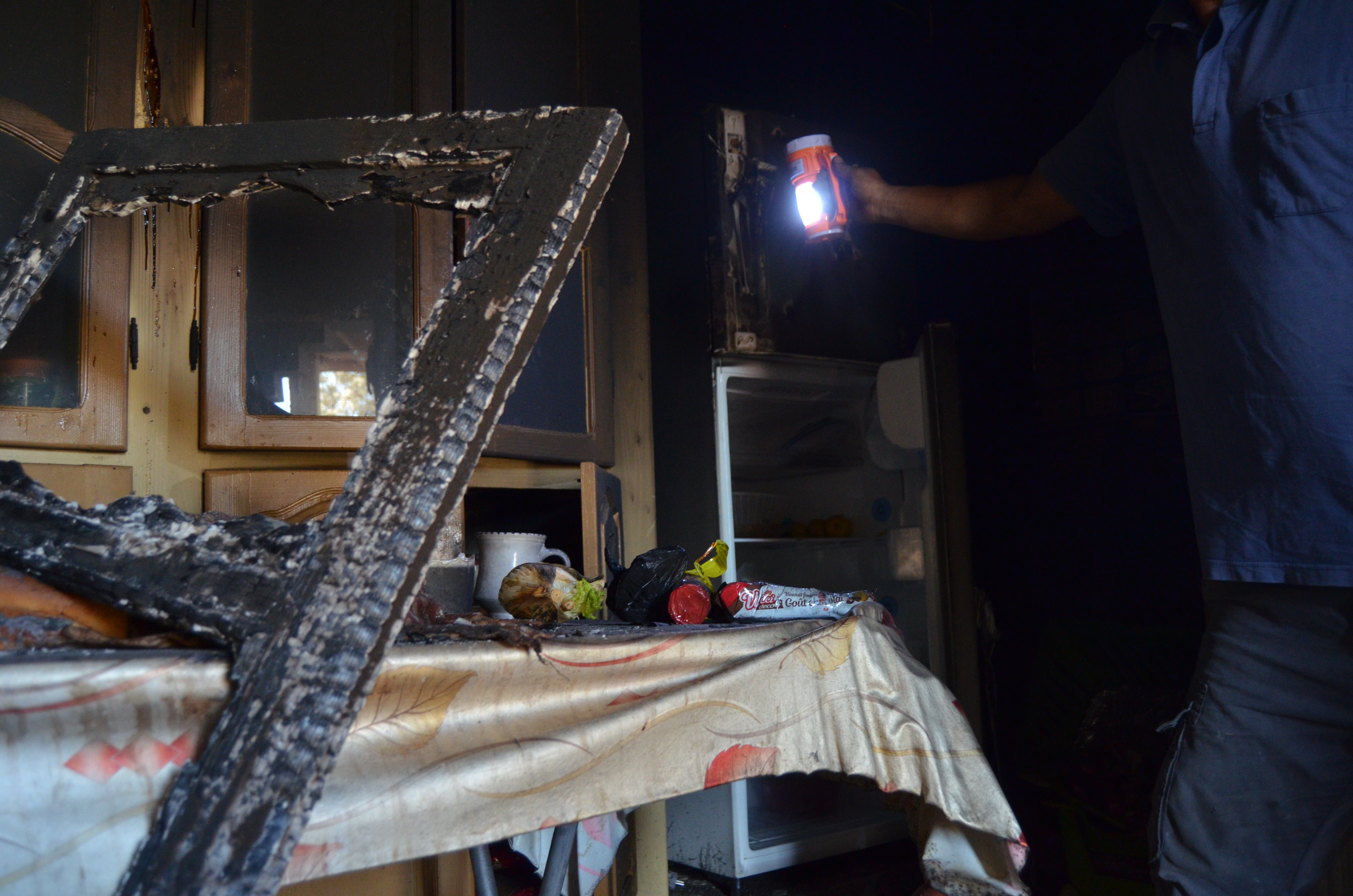
Tabarka, Tunisia – First it came slowly, then the fire came very, very quickly.
In a matter of minutes, Ines recounts, it had travelled hundreds of metres. Soon, the flames were stretching as high as the trees that skirted her family’s comfortable villa in Maloula, northern Tunisia.
Ines describes helping her husband, Maher, bundle up their two young sons into the car, before heading to the nearby resort town of Tabarka.
She sums it up simply: “chaos”.
For days, the fire had simmered in the forest near Maloula, but, at around midday on Monday, as temperatures closed in on 50 degrees Celsius (122 Fahrenheit), it very quickly spread.
Maher and others still went back to the village to help evacuate those left behind, some of whom did not have access to cars, or who were struggling with elderly relatives. He managed three trips, before the blaze made the road impassable.
“The heat was incredible,” he says. Asked what it sounded like, he reaches for his phone and plays an audio recording. The noise doesn’t sound so much like a roar as a howl.

Destroyed homes
Across much of Tunisia’s border with Algeria, people are slowly coming to terms with the firestorms that ripped through much of the thick forests with a ferocity that, in a region plagued by forest fires, they say was unprecedented.
A few days ago, Maloula sat alongside thick forest. Residents’ phones show sweeping views, reaching down to an azure sea and an unspoiled coast. Now, the region is host to little but smoking undergrowth, and brutal charcoal grey stains that lie seared onto the now barren landscape.
Intense summer temperatures conspired with merciless winds to leave many homeless and guessing what the future may hold for them.
The smell of smoke is everywhere.
Samir stands in the charred remains of what, a few days ago, had been his home. Around him sit tins of baby food and tiny children’s shoes, all coated in a thick black soot.
“The fire came very quickly with the wind,” he says. “It was like someone had thrown gasoline on it.”
“People who are 70 or 80, it’s the first time they’ve seen this.”

Samir was around when the fire struck. “There were particles of fire,” he says in French, describing how the winds carried the fire’s sparks into his home, setting fire to the doors and beds, before the family, including his wife, mother and sons, were able to make their way to the car and Tabarka.
Like others, Samir returned.
“War is better than fire,” he says, “It was terror.”
In Maloula, those who could not escape by car made their way down the long winding path to the cove to escape by boat.
Many have been lucky, calling upon the deep family connections that continue to draw the village’s children back from Europe to construct elaborate villas close to the wider families that many now lodge with.
Others were left to sleep in schools, before returning as soon as possible for fear of looters who might seek to take advantage of the town’s misery.

In the village centre, still recovering from the onslaught of the flames, peoples’ confidence in the authorities is waning.
Crowds demonstrate against the state’s failure to restore supplies of electricity and water.
Overhead comes the repeated low guttural drone of relief aircraft making their way from the receding water levels of the area’s reservoirs to the few fires that still burn along the frontier.
Regional heatwave
Both Algeria and Tunisia have been gripped by an unprecedented heatwave that has seen temperatures reach 50C (122F) in Tunisia’s capital, while record temperatures have been recorded across Algeria since the heatwave took hold in early July.
In Algeria, at least 34 people have succumbed to fires, which continue to burn and simmer in many locations.
In response, Algiers has mobilised around 8,000 firefighters, with additional support coming from the military, 10 of whom were among those killed.
In Tunisia, following a visit from President Kais Saied, a crisis cell headed by the country’s Prime Minister Najla Bouden has been established to coordinate the national and international response to the fires.
The #heatwave in the Mediterranean is causing multiple weather extremes
On 24 July
➡️Air T° in Tunis 🇹🇳 and Palermo 🇮🇹 rose to record values of 49°C and 47°C respectively
➡️Devastating #wildfires 🔥 killed 34 in Algeria 🇩🇿⬇️#Sentinel3 🇪🇺🛰️image of the same day pic.twitter.com/8ogLEHUuKy
— 🇪🇺 DG DEFIS #StrongerTogether (@defis_eu) July 25, 2023
Winds have only made matters worse, pushing the blaze in the mountainous Kabylie region to the east of the capital, Algiers, towards residential areas in the coastal towns of Bejaia and Jijel.
Around Maloula, accounts of the wind’s impact on the fire are everywhere.
North Africa has been dogged by the same extreme weather – which many scientists say is a result of climate change – engulfing much of the southern Mediterranean region, forcing the Greek islands of Rhodes, Evia and Corfu to be evacuated.
In Algiers, emergency services were already saturated by admissions from the heat, with 250 people attending the emergency room of Le Centre Hospitalo-Universitaire Mustapha in a single day, seven of whom later died, the director of medical services said.
In Tunisia, while there are no details on hospital admissions since the heatwave struck, a list of precautions issued by the Ministry of Health before July did urge the public to be aware of the worst effects of the sun.
In Maloula, Ines is not sure how long it will take for things to return to normal.
“It’s the first time this has happened,” she says. “People say that 20 years ago, the fires were very big, but left the houses alone. Now we have this. No one knows how long it will take.”







